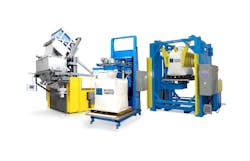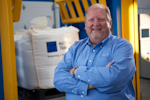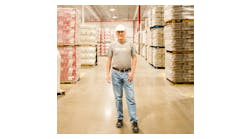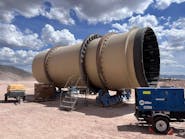Transforming risk into reward with bulk material handling operations
With supply disruptions, labor shortages and escalations in demand, many process manufacturers are confronting today’s ongoing economic unpredictability and volatility by de-risking operations wherever possible. For many process manufacturers, bulk material handling processes represent a sometimes-overlooked de-risking opportunity. Companies that find ways to reduce risks in their operations can tap into new competitive advantages, while companies that do not will fall behind. This article will look at three key strategies to help transform risk into reward on your production floor.
Improving production efficiency
Meeting today’s increased demand with the current shortage of skilled workers is hard enough, and the manual bulk material handling processes found in many facilities make it even harder.
For example, in bulk bag filling processes you might see production teams scooping, measuring and weighing bulk material by hand. For bulk bag conditioning to loosen materials to a manageable state, it is not uncommon to see workers hitting the bag repeatedly with a bat or ramming it against a wall with a forklift.
Automation is an ideal way to transform these inefficient and often unsafe practices. This may include integrating:
- A bulk bag filling system that accurately and efficiently measures and weighs ingredients.
- A bulk bag conditioning system that safely and efficiently returns hardened materials in bulk bags to a manageable, free-flowing state.
- A discharging system that meters ingredients quickly and uniformly into containers.
All these elements can be incorporated into a complete integrated system with easy touchscreen controls for a streamlined, error-free process every time.
Ensuring product integrity and quality
The challenge of meeting demand while dealing with a worker shortage is also creating risks in product quality. Poor quality or contamination can cause waste and delays during high demand periods or, in worst-case scenarios, cause recalls that result in damaged brand reputation and cost millions of dollars to restore.
Product quality issues have also hit the COVID-19 vaccine supply. In April 2021, a Baltimore company had to throw out a bad batch of the Johnson & Johnson vaccine due to a mix-up with ingredients.
Automating bulk material handling processes can help minimize some of these product integrity risks by reducing the possibility of human error and human touch.
In the food and beverage industry, for example, sanitary stainless-steel surfaces with smooth-ground, continuous welds coupled with debris shields can help prevent contamination in all direct and indirect contact areas.
In the pharmaceutical industry, in the case of COVID-19 vaccine distribution, cold chain requirements add another layer of complexity. Automation is helping ensure proper packaging to protect and preserve the integrity of components. As part of the supply chain for one of the vaccines, a custom designed discharging system dispenses metered dry ice into temperature-controlled containers, providing the necessary insulation and protection from breaks and cracks during transport — and safeguarding the product until it reaches the injection point. The system also includes a customized touch-screen control panel to monitor system performance and send diagnostic reports back to the vaccine manufacturer.
Protecting operator safety
Across the country, 5,333 workers were injured due to on-the-job occurrences in 2019, according to the U.S. Bureau of Labor Statistics. At a time when finding and keeping skilled workers is such a challenge, this is especially problematic.
Addressing your bulk material handling operations is one of many ways to reduce the risk of workplace accidents and injuries and possibly transform your operation into a safe shop floor.
Overreaching and bending movements are common culprits of injuries. More ergonomic design features on bulk handling equipment, such as rotating arms to minimize reaching and make loading and unloading easier, can reduce operator fatigue and the associated risk of injury. In addition, flexible programming and touch-screen operator interfaces can help minimize manual handling, often condensing an entire process into a single push of a button.
From risk to reward
In nearly every industry sector, supply chain issues and labor shortages should make eliminating operational risks a top reward. However, de-risking can bring additional benefits to your organization. Paying attention to the details, including what might seem like lesser risks in your bulk material handling processes, is what sets apart the leading companies of today and tomorrow.
Scott Nyhof is president at Material Transfer & Storage, a bulk solids handling equipment supplier headquartered in Allegan, Michigan.
Material Transfer & Storage



